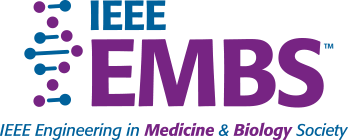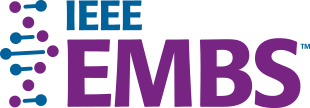Vice-President-Elect, President Nominees
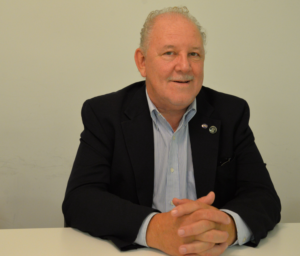 Ricardo Armentano, Universidad de la Republica CENURlitoral
Ricardo Armentano, Universidad de la Republica CENURlitoral
Bio:
Ricardo Armentano is a distinguished figure in the field of biomedical engineering, boasting over 40 years of experience. His pioneering research in cardiovascular hemodynamics, has garnered international recognition, with a publication record exceeding 300 contributions, including peer reviewed articles, books, and chapters. He has been honored as a Fellow by the International Academy of Medical and Biological Engineering and Eminent Engineer by the IEEE (R9) Latin America. Beyond academia, Ricardo has held pivotal roles in professional and administrative capacities across the Americas, Asia, and Europe. As an educator, he has been instrumental in designing and managing three full-time Biomedical Engineering degree programs, along with a master’s and doctorate programs. Ricardo Armentano’s impact extends to his contributions to IEEE EMBS member since 1985. He served as the General Chair of the first EMBC in South America (2010) and was the first Latin American member of the CSPE IEEE EMBS technical committee. His roles also include serving as an EMBS Distinguished Lecturer and as an EMBS R9 AdCom representative. Additionally, Ricardo has held significant positions at the Dr. René G. Favaloro University Foundation, including those of Chief Financial Officer, CEO, Chief Research and Development (R&D), and Dean of the Engineering and Exact and Natural Sciences School. He has also contributed as a Research and Development (R&D&I) Program Manager at the only country-wide public national engineering oriented university in Argentina (+80000ppl). As a Freelance Senior Consultant, specializing in Biomedical Global R&D&i, Ricardo also has made and continues making noteworthy contributions in education, research, and innovation.
Position Statement:
In today’s rapidly evolving society, the call for a more diverse, equitable, and inclusive culture is urgent, particularly in fields like the hybrid world of Engineering in Medicine and Biology. As we navigate this new century, it is evident that the pressing issues of our time—whether economic, environmental, technological, social, or political—are deeply entrenched and require a systemic approach beyond the confines of traditional academic disciplines and societal structures. To address these challenges, we need a profound shift in our perceptions, mindset, and values. This transformation is crucial in both the scientific and societal realms. It necessitates a holistic approach, one that integrates knowledge and pays heed to the insights of humanities when devising science and engineering solutions that cater to societal needs. This global outlook closely resonates with my vision for leading EMBS with the primary challenge to cultivate an environment where diverse voices can flourish, embracing a transcultural perspective fluent in multiple languages and adept at adapting to various cultural contexts. The contemporary perspective of a world intricately interconnected, immensely complex, creative, and infused with cognitive intelligence serve as an extraordinary source of inspiration to envision the biomedical engineer of the future. Given the rise of an increasingly educated and connected generation that is standing up against the abuse of power and threats which the entire planet faces, I advocate for a paradigm shift in nurturing the next generation of EMBS leaders. This shift is vital for the vibrancy, advancement, and the calling of our society.
Video Submission:
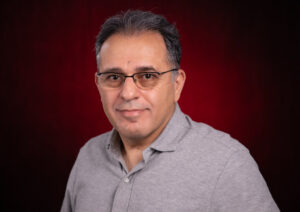 Amir Amini, University of Louisville
Amir Amini, University of Louisville
Bio:
Amir A. Amini received the BS degree in Electrical Engineering from the University of Massachusetts, Amherst, MA, with high honors when at 18 he was the youngest graduate of the University, and the Ph.D. from the University of Michigan AI Lab. He was at Yale as Assistant Professor (1992-1996), at Washington University as Assistant and Associate Professor with tenure (1996-2006) and has been Professor and Endowed Chair in Bioimaging at University of Louisville since 2006. He is the recipient of the NIH FIRST Award and University of Louisville Delphi Center for Teaching and Learning Faculty Favorite Award. He co-chaired the SPIE Medical Imaging Conference on Physiology and Function from Medical Images (2003-2006), SPIE Medical Imaging Symposium in 2007, and IEEE International Symposium on Biomedical Imaging in 2018. He was a Distinguished Lecturer of the IEEE EMBS, has served since 2013 on EMBS TC on BIIP, and served on EMBS Ad Com (2016-2018). Dr. Amini has been on the editorial board of IEEE Trans. On Medical Imaging (1999-), IEEE T-BME (2014-), IEEE JBHI (2016-2019), the IEEE OJEMB (2019-), and the IEEE R-BME since 2020. He was Vice President for Publications for IEEE EMBS for the term 2020-2021. He is a Fellow of the IEEE (2007), American Institute for Medical and Biological Engineering (2017), the International Society for Optics, Photonics, and Imaging (SPIE) (2019), and the Asia-Pacific Artificial Intelligence Association (2021). Dr. Amini received the University of Massachusetts at Amherst College of Engineering Distinguished Alumni Award in 2020.
Position Statement:
I am deeply honored to have been nominated for President-Elect of EMBS. As a dedicated EMBS member, my roles as journal reviewer, editorial board member, conference chair (ISBI2018), AdCom member, and VP-publications have given me valuable insights into the needs of EMBS and its members.
EMBS, as a premier international organization, has played a crucial role in the development of our field by providing a high-quality platform for effective research dissemination and student training. If elected, I’ll work closely with ExCom and AdCom to formulate strategies to bolster EMBS’ membership across IEEE regions and professional levels, elevate our journals, and enhance our conference portfolio. To bolster membership, we’ll employ dual bottom-up and top-down approaches, recruiting members through chapters, TC’s, conference participants and journal authors while also engaging with specialized medical conferences rich in technological focus, such as radiology, cardiology, radiation oncology, pathology, and surgery. Building on foundation laid by current leadership, we’ll continue our global outreach efforts. In the area of publications, our portfolio and editors excel. We’ll prioritize promotion of journals and focus on elevating quality and impact. The challenge of securing reviewers will be addressed through recognition mechanisms for outstanding reviewers. Our conference activities have made significant strides in enhancing quality and reputation. Our efforts will aim to strengthen EMBS’ leadership in burgeoning areas, particularly AI in healthcare. As President, I’ll foster collaboration between conference and publication activities and initiate partnerships with other societies. Diversity, equity, and inclusion are core values, and I will champion these.
Video Submission:
 Erika Ross Ellison, ONWARD Medical
Erika Ross Ellison, ONWARD Medical
Bio:
Erika is the Vice President of Clinical, Regulatory, and Quality at ONWARD Medical, a neuromodulation medical device company that came out of the Swiss Federal Institute of Technology Lausanne. At ONWARD, Erika leads a team of scientists, engineers, and regulatory experts and leads the global clinical, regulatory, and quality strategy for the company. Erika works closely with international research collaborators to generate the evidence base necessary to bring these therapies to market for people with spinal cord injury. Erika joined ONWARD from Abbott Neuromodulation, where she was the Director of Clinical & Applied Research, leading the global research team, strategy, and portfolio of research studies for Abbott’s spinal cord and deep brain stimulation current and emerging systems for Parkinson’s disease, chronic pain, and additional emerging conditions. Previously, as Neuroscience Director at Cala Health, a medical device start-up company that came out of the Stanford Biodesign Program, Erika managed the scientific research program that led to FDA de novo clearance and launch of the company’s neurostimulation technology for essential tremor. Prior to this, Erika served as Deputy Director of the Medical Device Innovation Accelerator at, Department of Surgery and Assistant Professor, Department of Neurologic Surgery at Mayo Clinic. Erika’s PhD work focused on developing, testing, and characterizing existing and new methods of deep brain stimulation in Parkinson’s disease and in Alzheimer’s disease.
Position Statement:
As a candidate for President of IEEE EMBS, I am committed to advancing the society by prioritizing three key aspects: fostering collaboration between academia and industry, promoting student development and mentorship, and championing diversity and inclusion.
First, I recognize the unique opportunity IEEE EMBS holds in bridging the gap between academia and industry to enhance healthcare solutions. By establishing and strengthening relationships between researchers and industry professionals, we can further integrate cutting-edge academic research into practical, real-world applications. This collaboration will ensure that our society remains at the forefront of innovation, driving advancements in bioengineering for the betterment of global health.
Second, I am dedicated to prioritizing students and mentorship initiatives within IEEE EMBS. By providing students with meaningful opportunities for learning, networking, and mentorship, we can cultivate the next generation of bioengineering leaders. This will contribute to building a skilled and diverse workforce, ensuring the continued success and growth of our field.
Third, I am committed to upholding the values of diversity, inclusion, and equity within IEEE EMBS. By actively working to advance groups including underrepresented minorities, women, and young professionals in our society, we can harness the power of diverse perspectives and experiences to drive innovation. Our society has made great progress in this area and I intend to maintain that momentum.
In summary, my presidency will be characterized by a commitment to collaboration, supporting the next generation, and championing diversity. Together, we can propel IEEE EMBS to new heights and make lasting impacts in engineering and medicine.
Video Submission:
Vice-President-Elect, Membership & Student Activities Nominees
 Peter L. Elkin, MD, MACP, FACMI, FNYAM, FAMIA,FIAHSI, University at Buffalo
Peter L. Elkin, MD, MACP, FACMI, FNYAM, FAMIA,FIAHSI, University at Buffalo
Bio:
Dr. Elkin serves as the UB Distinguished Professor and Chair of the UB Department of Biomedical Informatics. Dr. Elkin has published over 200 peer-reviewed publications and book chapters. He received his Bachelors of Science from Union College and his M.D. from New York Medical College. This NIH/NLM sponsored fellowship in Medical Informatics was at Harvard Medical School and the Massachusetts General Hospital. Dr. Elkin has been working in Biomedical Informatics since 1981 and has been actively researching health big data science since 1987. Dr. Elkin is a Master of the American College of Physicians and a Fellow of the American College of Medical Informatics and a Fellow of the New York Academy of Medicine. He was awarded the Mayo Department of Medicine’s Laureate Award for 2005. Dr. Elkin is the index recipient of the Homer R. Warner award for outstanding contribution to the field of Medical Informatics. Dr. Elkin is an internationally renowned expert in knowledge representation, ontology, natural language processing and health IT standards. Dr. Elkin in 2018 received the Team Science Award from the National Center for Advancement of Translational Sciences and was elected an inaugural fellow of the American Medical Informatics Association for Clinical Informatics excellence and has been elected to the International Academy of Health Sciences Informatics. He serves as co-chair of the NCATS iEC and of the NCATS Informatics Quality Metrics Committee. He publishes the Springer series Textbook on Terminology, Ontology, and their Implementations. He has been elected to the AMIA Board of Directors.
Position Statement:
I have been a member of iEEE and of EMBS for quite some time. I am proud to have served on AdCOM as a practitioner. I have served as the chair of the Education Committee where I helped to organize and facilitate the summer school programs. We worked with the Executive Committee to fund students who did not have the means to attend the summer school sessions. We worked on an evaluation strategy to judge the efficacy of the summer school programs and gathered feedback. I am proud to be nominated for VP of ExCOM and will continue to advance the societies goals if elected and to grow the membership and related educational programs.
Video Submission:
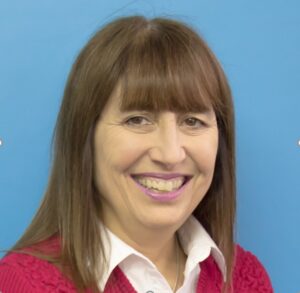 Virginia Laura Ballarin, Universidad Nacional de Mar del Plata
Virginia Laura Ballarin, Universidad Nacional de Mar del Plata
Bio:
Virginia Laura Ballarin serves as Professor in Signal Processing area at the Electronics Engineering Department of the Universidad Nacional de Mar del Plata, Argentina and Director of the Image Processing Research Group at Research Institute of Science and Technology in Electronics since 2011 to 2023. She has directed more than 20 PhD theses and 25 undergraduate theses, all in biomedical image processing area. She is the author of more than 80 papers in refereed journals and more than 130 conference presentations. Currently she is Director of the Postgraduate Program in Bioengineering at the Universidad Nacional de Mar del Plata and Associate Editor for Smart Hospital Section of Computational and Structural Biotechnology Journal; Chief Editor of the Argentinian Bioengineering Journal since 2015 to 2023. She was President of the Argentinian Bioengineering Society from 2013 to 2015; President of the Argentinian Chapter of EMBS– IEEE from 2016 to 2018 and EMBS Representative for Regional 9 during 2021. She is currently Vice President of IEEE Argentinian Chapter, Vice President of Regional Council of Biomedical Engineering for Latin America CORAL and member of the Administrative Council of the international Federation for Medical and Biological Engineering IFMBE 2022-2028.
Position Statement:
I am honored to submit my candidacy for the role of Vice President of Member and Student Activities. With a strong commitment to EMBS mission and a solid track record of leadership and involvement in member and student-related activities, I believe I am well-equipped to take on this significant responsibility. In my previous roles, both at EMBS-IEEE and as the President of the Argentinian Bioengineering Society, as well as my membership on the IFMBE’s Administrative Committee (AdCom), I have contributed to the strategic direction of our global community, furthering the mission of promoting diversity and inclusion. As a candidate for this position, my primary focus will be to provide effective leadership for members and student services while driving membership growth and development. Recognizing the importance of this role, I commit to: • Coordinate and lead the activities of the Member and Student Activities committees, ensuring their objectives are met efficiently and promoting collaboration and teamwork. • Coordinate and facilitate the development of local chapters, thereby fostering active member participation in their respective communities. • Drive student activities and coordinate the development of Student Branch Chapters, promoting their growth and participation. • Oversee and promote significant annual events, such as student paper and design competitions. I am deeply committed to the mission and values of our Society and excited about the opportunity to lead and support member and student activities. With a track record of fostering academic growth and leading professional societies, I am confident that I can contribute significantly to the EMBS.
Video Submission:
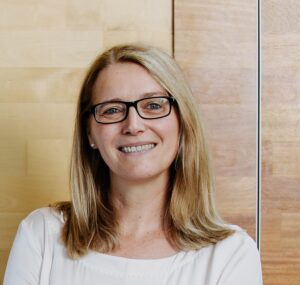 Natalie Mrachacz-Kersting, PhD, Albert-Ludwigs University Freiburg
Natalie Mrachacz-Kersting, PhD, Albert-Ludwigs University Freiburg
Bio:
Professor Natalie Mrachacz-Kersting received her PhD in Biomedical Science and Engineering from The University of Aalborg, Denmark in 2005 and held several positions at the University of Auckland, New Zealand and Aalborg University, Denmark. In 2019 she was appointed full Professor in Neuroscience and Medical Technologies at the University of Applied Sciences and Arts Dortmund, Germany. In 2021 she accepted a position as full Professor and Chair in Neuroscience at the University of Freiburg, Germany. Her research focuses on neurorehabilitation technology for the restoration and replacement of lost motor function, and neural control of movement. She has (co)-authored more than 80 manuscripts in peer-reviewed Journals and >170 conference abstracts and papers. She was the recipient of the International Award in Brain-Computer-Interfaces in 2017 and received several prestigious grants from the Innovation Fond of Denmark, Kong Christian den Tiendes Fond and Lundbeck Fond of Denmark. She is currently chair of the fundraising committee of the Brain-Computer Interface Society and member of the communications committee. Since January 2023 she serves as an IEEE EMBS Practitioner Representative and on the steering committee of IEEE Brain. She is Associate-Editor of Transactions on Neural Systems and Rehabilitation Engineering, Brain-Computer-Interfaces, Scandinavian Journal of Medicine and Science in Sports and Frontiers in Human Neuroscience. In Freiburg she is the director of the student health management group that collaborates with health insurances to provide the student body with innovative opportunities to improve health in all aspects from psychological stress to time management.
Position Statement:
I have been privileged to contribute to the field of biomedical engineering, and my journey has been marked by a commitment to innovation and inclusivity. As a Professor at Albert Ludwig University Freiburg, I have had the opportunity to engage with diverse perspectives, mentor aspiring researchers, and lead initiatives that bridge the gap between seasoned professionals and the next generation of talents.
Research is not just about generating data and publishing papers. It is about building bridges between disciplines, forging connections that transcend borders and backgrounds. I have consistently sought to integrate various perspectives, recognizing that the most groundbreaking advancements often emerge from the convergence of diverse ideas. I want to promote interdisciplinary collaboration, ensuring that our society remains at the forefront of technological innovation and scientific discovery.
I have a commitment to empowering the next generation of biomedical engineers. I firmly believe in creating a nurturing environment for students and young professionals, providing them with the resources and support needed to thrive in our ever-evolving field. By fostering a culture of mentorship and inclusivity, we can inspire and cultivate the leaders who will drive our society forward.
I want to bring this same dedication and enthusiasm to the IEEE EMBS, to work tirelessly to enhance the member experience, create networking opportunities, and develop programs that cater to the unique needs of our student members. I envision a society where every member feels valued, supported, and equipped with the tools to succeed.
Video Submission:
Vice-President-Elect, Conferences Nominees
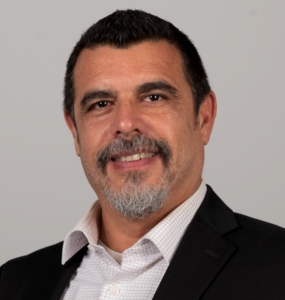 Riccardo Barbieri, Politecnico di Milano
Riccardo Barbieri, Politecnico di Milano
Bio:
Dr. Riccardo Barbieri received the M.S. degree in Electrical Engineering from the University of Rome “La Sapienza”, Rome, Italy, in 1992, and the Ph.D. in Biomedical Engineering from Boston University, Boston, MA, in 1998. He is currently Associate Professor at the Politecnico di Milano. His broad research interests are in the development of signal processing algorithms for the analysis of biological systems, focusing on A.I.-based computational modeling of neural information encoding and characterization of cardiovascular control pathophysiology in clinical and non-clinical environments. He is author of more than 200 peer-reviewed publications in these fields since 1994 (h-index 38). Dr. Barbieri is a Member of the American Association for the Advancement of Science, the European Society of Hypertension, and Senior Member of IEEE and the Engineering in Medicine and Biology Society (EMBS). Dr. Barbieri has covered several editorial duties within the EMBS conferences since 1990, including the International Conferences on Biomedical and Health Informatics (EMBS-BHI) and on Neural Engineering (EMBS-NER), and the flagship Conference of the IEEEEMBS, where he has served as Editor-in-chief from 2018 to 2022. Dr. Barbieri is Area Editor (Cardiovascular Research) for the IEEE Open Journal of Engineering in Medicine and Biology, and he holds the role of Associate Editor for other biomedical engineering journals. He is also currently a member of the IEEE EMBS Technical Communities on Biomedical Signal Processing and on Neural and Rehabilitation Engineering, and he is serving as Chair of the IEEE EMBS Technical Community on Cardiopulmonary Systems and Physiology-Based Engineering.
Position Statement:
I am honored to express my nomination for the esteemed role of Vice President for Conferences. As an Associate Professor at Politecnico di Milano, and someone who has been actively engaged in the EMBS conferences growth and development for several years, I feel a deep sense of responsibility and commitment to furthering our conferences’ success. My journey as an academic and my constant active involvement in the flagship IEEE-EMBS conference have provided me with the experience and insights necessary to excel in this role. I have served as an Associate Editor, Editor, and, subsequently, as Editor-in-chief for this conference, gaining valuable insights into the intricacies of the conference’s operation by working closely with the organizing committees, the reviewers, and the authors. Here is my vision for the role:
1. Strengthening Review and Selection Processes: uphold the high standards of quality that EMBS is known for, by enhancing and streamlining the paper submission and review processes to ensure a rigorous and impartial selection of papers.
2. Supporting Emerging Researchers: propose initiatives to provide mentorship, guidance, and resources to young scholars, encouraging their active participation in our conference and nurturing the next generation of researchers.
3. Sustainability and Inclusivity: explore ways to reduce our environmental footprint and promote diversity, ensuring a welcoming environment for all participants.
4. Transparent Governance: ensure open communication, accountability, and transparency in decision-making, with all stakeholders well-informed and engaged in shaping the future of EMBS conferences.
5. Excellence: work collaboratively with the committee and conference members to make EMBS conferences a global hub for cutting-edge research and innovation at the highest standard of exellence.
Video Submission:
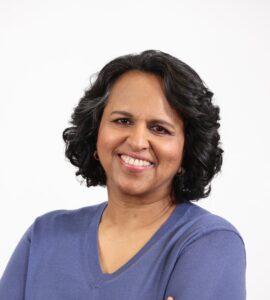 Beena Ahmed, University of New South Wales
Beena Ahmed, University of New South Wales
Bio:
Dr. Beena Ahmed is an Associate Professor in Signal Processing at the School of Electrical Engineering and Telecommunications, University of New South Wales (UNSW) Sydney, Australia. Prior to that she was with Texas A&M University at Qatar. She received her PhD from UNSW in 2004. Her research is in the field of biomedical signal processing and machine learning. Specifically, she works with non-invasive data types including ECG, EEG as well as disordered speech, with a focus on providing equitable access. She has published over 100 career publications. She is the co-founder and CTO of Say66, where she is translating her research to provide an automated speech therapy tool for people with speech disorders. She has received multiple awards for her work including the 2020 Innovation Award from Speech Pathology Australia, 2021 Women in AI, 2022 Telstra Digital Health Award and 2023 Gamechanger Award from the American Speech and Hearing Association. Dr. Ahmed is elected to the IEEE EMBS Administrative Committee (AdCom) as the Technical Representative (2018-2023) and was the Program co-chair of EMBC2023 held in Sydney, Australia
Position Statement:
As a dedicated member of EMBS, I have viewed our conferences from different perspectives, most recently as a technical representative in AdCom and Program Chair for EMBC2023. At EMBC2023, I helped deliver a successful conference with one of the highest number of attendees, strong female and student participation, and pioneering industry and research translation sessions. I also experienced firsthand the problems that arise when changing a conference management software. I would like to use this recent experience to help elevate the reputation and quality of our conferences. If elected, I will strive to improve the calibre of our conferences by pursuing five areas. First, to increase quality, I will work with the Editorial Board to review the acceptance rates and review process. I will investigate how to better link the special topic conferences with the technical committees and specialist journals. Second, to ensure we continue building links between academia and industry, I will work with EMBC2025 and EMBC2026 organisers to increase industry participation and sponsorship through sessions on research translation and entrepreneurship. Third, to ensure we properly mentor our students and young professionals, I will work with stakeholders to include activities they need. Fourth, to make our conferences more inclusive, I will help develop sessions that encourage participation from women and diverse groups and raise broad awareness of the challenges they face. Finally, to ensure transparency and improve conference management, I will work with AdCom and ExCom to build complete guidelines and processes for conference bidding and organisation.
Video Submission:
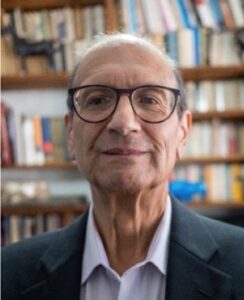 Joaquin Azpiroz Leehan, Universidad Autonoma Metropolitana, Mexico
Joaquin Azpiroz Leehan, Universidad Autonoma Metropolitana, Mexico
Bio:
JOAQUIN AZPIROZ LEEHAN obtained his B Sc and M Sc in Biomedical Engineering from Universidad Autónoma Metropolitana (UAM) in Mexico City in 1980 and 1986. He earned his Ph. D. in Biomedical Engineering from the Université de Technologie de Compiègne, France in 1992. He is currently Professor of Biomedical Engineering and Scientific Coordinator at CI3M, a National Laboratory for Medical Imaging and instrumentation at UAM. He has worked on many different facets of Biomedical Engineering: from designing and building custom instrumentation for physiological & biophysical experiments, hardware-based signal processing systems, image processing, and the design and development of medical devices. Another field las been MR imaging (structural and functional), with special emphasis is on effects of environmental and workplace inhalation of pollutants and solvents. Another important interest has been BME Education. He has directed 25 capstone projects, 16 M Sc. Theses and 5 Ph.Ds He has written 68 publications, two books (Medical Imaging and Image processing) and five book chapters At EMBS he has organized two EMB conferences, at Cancun (Program chair) and a virtual 2021 (program chair) and mentored the EMBS Region 9 conference (2023). He has been EMBS R9 representative twice and has been Associate Editor for IEEE TMBE and TITB. He has been a Senior Member since 2007 and will become an IEEE Life Member in January, 2024.
Position Statement:
EMBS members and volunteers are the most important assets of the society. It is through the volunteers that the conferences and meetings are organized. Thanks to their participation, the EMBS is able to support publications and conferences, so EMBS should give good value for their membership. Members and volunteers deserve our highest recognition and respect. Yet, it would appear that once these people have engaged in an activity, they are taken for granted. For example, with regard to conference organizing, what once was an enthusiastic proposal turns quickly into a chore. It should not be so. On the other hand, it appears that attendees are very satisfied with what the society delivers at conferences. The only quite negative issue I have found is the cost. Registration costs to young professionals is excessive and in the case for students, it is prohibitive, especially when conferences are held in locations where travel is expensive. IEEE is a very complicated Institute. It is no longer a society, and the requirements for hosting a conference are quite complicated, especially when we consider that it demands a very high return on investment. I am more interested in supplying More value to members rather than large monetary compensation to the institute If elected as a VP for conferences, my most important contribution will be to help volunteers and other members to do their work in the least stressful manner and to help streamline various sub-processes that deal with the conference management.
Video Submission:
